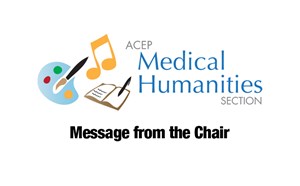
Adopting a Baby in Five Days
“If you ever had to adopt a baby then whom would you settle for?”
This was the question that I posed to myself recently. Not that I had to nor wanted to adopt a child. I have two of my own (biological ones, so my wife tells me), and they are more than a handful.
It all started in Karachi one fine morning while I was working in the ER. A young couple had brought a two-day-old baby girl* to me. The ER triage slip simply stated “baby adopted” as the reason for coming to the ER. I had never come across that as a presenting complaint in the ER, so my curiosity was piqued, irrespective of it being early moments of my ER shift without adequate caffeine in the system.
It turned out that the baby had been picked up half an hour before, from a major orphanage in Karachi. The baby had been delivered the day before, per the orphanage staff’s speculation, and she had then been left at the doorstep of the orphanage. Although babies being abandoned there might have been a normal occurrence for the staff, even contemplating that scenario was angst-ridden for me.
Anyhow, the above was the narrative that the adoptive parents had been given. The bottom line was that there were no pregnancy, labor and delivery records available; no information was there as to the location of delivery, i.e., whether hospital or home, although the latter was more likely. Furthermore, there was absolutely no biological family history available.
Initially I had assumed that the parents were the adoptive ones, i.e., they had adopted the child. However, what was more fascinating, and a tad bit alarming: that they had actually not gone through the entire process of adoption.
I was unsure as to how to address the young couple: as adoptive or foster parents or merely as transient custodians?
The lady likely figured the confusion written all across my face. “Doctor Mian, we have been told that we can keep the baby for five days, have her tested and examined in any manner, but prior to that period ending we are to make a decision…” she said in impeccable English. The young mother to be (or not to be) let her statement trail off and she didn’t maintain eye contact as she said the last bit.
After a few seconds of an uncomfortable silence that had descended, the father to be (or not to be) added, “Doctor Sahib we live in Los Angeles. We would like to have the blood drawn now and results available within the next two days. We don’t have enough time.”
I was tempted to ask the couple why they were contemplating adoption in the first place, and why in Pakistan. I didn’t inquire because the ER seemed to be a less than adequate place for gathering such information. It also occurred to me that I could refuse to send the blood tests on the baby as it was certainly not an emergency case. But given the novelty of the situation (from my perspective), and the fact that there weren’t many urgent or emergent children requiring more of my time, I agreed to examine the baby and send her blood work.
In spite of difficulty in remembering names, I inquire about every child’s name prior to starting a physical examination. This time was no different.
“What’s your baby’s name?”
“Doctor Sahib, we don’t wish to get attached to this child within the five-day period in case we have to return her.” This was all she said. Perhaps in way of explanation.
On examination, the baby was like other normal two-day-old neonates that I had examined in the past. She was vigorous, pink all over, sucking away at a pacifier. Her eyes were a remarkable greenish-gray in color. Although babies that young are unable to focus very well, to me it seemed like she was looking me right in the eyes. Somehow, I felt really connected to her. It might sound irrational, but right at that moment I realized that I was silently praying for a good future home for her.
I forced myself to keep on track with the couple’s request for testing her blood. A few simple screening labs, including infectious disease-related ones, occurred to me.
Reading my mind and perhaps disagreeing with my plan, the man took out a sheet from the folder he was holding. “Doctor, this is the list of diseases that we would like the baby to be tested for.”
The list comprised of almost sixty diseases, several of which had exceedingly difficult names and were likely very rare.
Methylmalonic or propionic acidemia, orotic aciduria, severe combined immunodeficiency, pyruvic dehydrogenase deficiency, familial hypercholesterolemia, and so on.
“This list is quite illogical. We don’t have the expertise to test for most of these diseases. In fact, a lot of these can’t even be readily tested in the US. Last I checked, we are still a developing country.” I couldn’t control that last sarcastic bit, although I had tried my best not to show my mounting frustration.
“Doctor, just do what you can then,” said the baby’s male custodian.
And I did.
After the blood tests had been sent off, the family left, and I forgot the baby soon after as the ER became busy with genuinely critically sick kids requiring my attention.
A few days later while reviewing laboratory reports, I came across a battery of blood tests that had been run on a single patient. It was the baby without a name. The identification given to her was “Baby Girl of Salma,” followed by a medical record number. Intriguing! Although the legal process of adoption had not been completed by then, the baby had to be identified through the potential adoptive mother’s name, irrespective of her not wanting attachment to the child at that stage.
Among the blood tests, there were two different hepatitis B-related ones that were of interest to me: one was positive and the other negative. The negative test, however, was highly sensitive or accurate in ruling out hepatitis B in the baby.
Did the couple become parents to the baby? Did she get named? If so, what was it? Is she really without hepatitis B viruses in her bloodstream?
I don’t know, as I never saw the baby nor her custodian-parents again.
If I ever had to adopt a baby in five days would I settle for the one whose story I told you…knowing those blood test results?
I don’t know….perhaps I will.
*Disclaimer: Names, ages and details of events bearing resemblance to someone real is purely coincidental.
Asad Mian, MD



